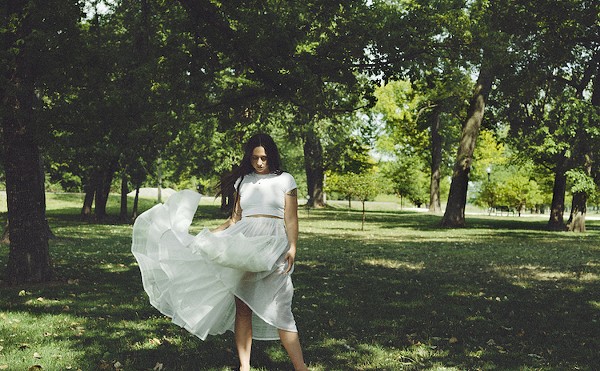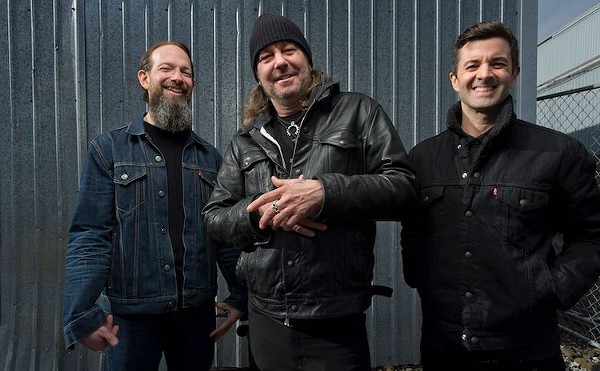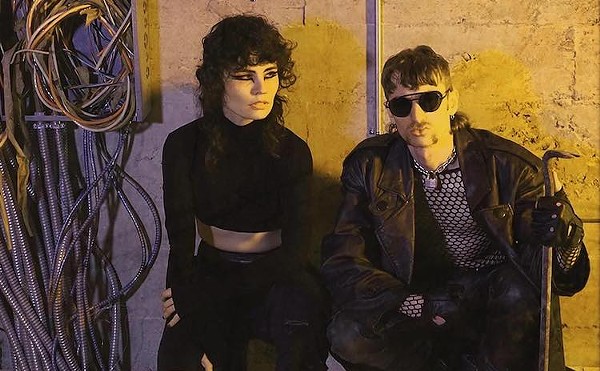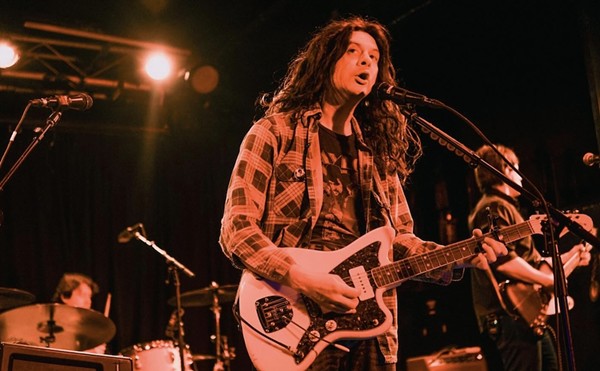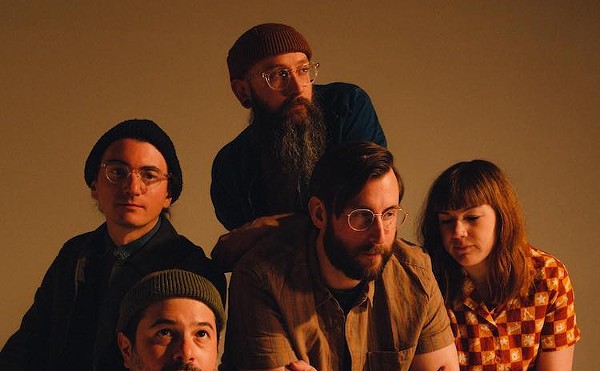It was kind of cute, at first – young guys playing old-man country. It was subversive, like trucker caps. Then, in the wake of the Soggy Bottom Boys and O Brother, Where Art Thou?, it became a thing. People in Brooklyn started doing it. Now it's an infestation.
Music blogs are wallpapered with 20-somethings with scraggly beards and earnest eyes pretending to play the banjo and attempting four-part harmonies with widely varying levels of success. Or, in the electrified version, plaintively warbling over substandard takes on the Band, Neil Young and Johnny Cash. Even the bands that do justice to the style get lost like Waldo in a sea of red and white stripes.
“Every time I see a beardo band, I know what to expect. A beard is like plaid shirts in the '90s,” says Southern Culture on the Skids guitarist Rick Miller. “Pretty soon, we're going to see fraternity guys with beards. I can't wait to see Justin Bieber with a beard.”
One might've figured the Americana boomlet would have been ticketed and towed by now. It's been a dozen years since O Brother's release, and the meter's surely expiring. Were the guys in charge of shuffling trends along and out of everyone's way victims of the post-millennial music-biz shakeout? If so, how are we supposed to get the caterwauling kook with the ZZ Top soup-strainer out of the guest room? (Honestly, the bouquet of road BO is wilting our Georgia O'Keeffe art prints.)
Certainly over the last decade there have been a variety of attempts to lure these carpetbaggers out. Since the millennium, electroclash, garage, indietronica (even Ben Gibbard found it too boring to continue), British dance-punks, ska's 928th revival, noise-pop and 2010's pale shut-in music célèbre, chillwave, have all failed to seize the zeitgeist and displace present roots-music fascinations. None survived much longer than a couple of years.
As we survey the underground – and it still looks like the cast of Ice Road Truckers doing their best Hee Haw imitation – we have to wonder, have young musicians run out of new ideas or just gotten lazier? By Canadian alt-country artist Fred Eaglesmith's reckoning, it's only Americana's hair and fingernails that are still growing.
“The perception is that Americana continues, right?” Eaglesmith asks. “To me, it's already done. There's just nothing new to take its place. I promise you if there were somewhere else to go, these guys would jump like flies. I know because I saw them jump out of punk onto Americana. They say Americana was their one true love, but I saw them date other genres before this.”
Perhaps one reason for the staying power of this stylistic tic is its connection to simpler times. (As if a time without dishwashers, online dating and pizza delivery could truly be considered “simpler.”) Some suggest the ascendance of Americana is related not just to nostalgia but a yearning for greater authenticity. That's part of Jay Farrar's take. He helped kick off the Americana renaissance in the late 1980s and early '90s with Uncle Tupelo, before they broke up, spawning Jeff Tweedy's Wilco and Farrar's Son Volt.
“In an age when anybody can buy a computer for a couple hundred bucks – which is great, it allows people to make music, but it can also make everything perfect in a way that wasn't available to them years ago – perhaps the pendulum does swing back to music that does seem more authentic and has a few mistakes and emotion in it,” Farrar says.
The sepia-toned flavor of the music can lend a hand lyrically, as well. Propped on its weathered shelves, what might come across as trite, hoary clichés are transformed into timeless sentiments; misanthropic narcissists with bad dating habits become the Marlboro Man with a tumbleweed heart. But just because it sounds like a murder ballad doesn't make it poignant, any more than vamping some gospel makes it inspirational.
Sure, it's great that paw-pop and mee-maw love your band, but you're kind of ruining pedal steel for everyone else. Indeed, part of what drew Farrar to the music in the first place was its novelty.
“At that point, that kind of music was not really fashionable at all. That's also what made it ultimately inspirational,” he says. “If I was just getting started now, I'm not sure if I'd share [Eaglesmith's] perspective or not. I still feel there's plenty of room for people to do whatever they do.”
That's one perspective. There's no denying that for nearly a quarter-century, loud, hard-charging electrified music ruled the 20-something underground from garage, punk and metal through hardcore, grunge and alt-rock. The broad expanse of Americana, encompassing the borders of country, blues and folk, works in its favor, affording plenty of camping space.
But the fact remains that nothing fails quite so assuredly as success. Even Michael Jordan ended up owning the Charlotte Bobcats, the worst team in basketball history. Twelve years of general ascendancy is a long time in any art form.
Yet crowning a successor remains a fool's errand. Perhaps Sharon Jones will show the way: The recent soul revival, as demonstrated by Jones, Mayer Hawthorne, JC Brooks and Black Joe Lewis, has gained steam, though the necessity of a great frontperson will obviously limit its widespread adoption (more than the need for alt-country artists to wail semi-convincingly and play an acoustic guitar).
Ultimately, it will probably come down to someone digging deep and finding something no one else thought of yet, someone capable of clearing the table of its moldy, long-suffering side dishes.
“In my experience, it's never where everyone's looking. When everyone's in the stock market, you know that's the time to get out. When everyone's buying real estate, that's the time to sell. When everyone's at the top of the barrel looking for those answers, guaranteed, one good dive and it's down there,” Eaglesmith says. “I'm looking for the guys so unique and new, they push me out.”







